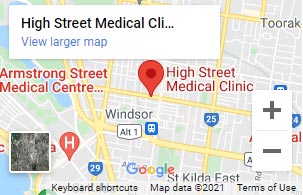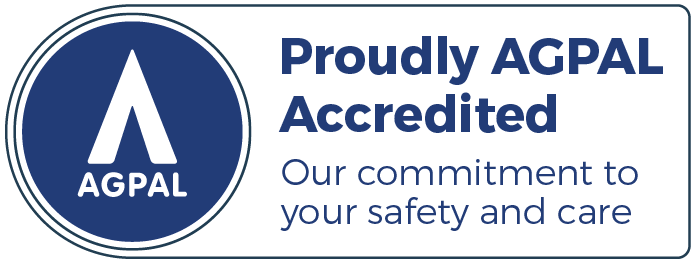Women’s Health at High Street Medical Clinic, Prahran
High Street Medical Clinic is a proud advocate of women’s health with an extensive suite of health services for women of all ages. As women, our emotional and physical health is complex, requiring qualified experienced care, the kind of care doctors at High Street Medical Clinic provide.
Whether you’re an existing or new patient, the team of women’s health experts are ready to help you through your life’s journey from important women’s health screenings and followup, family planning, sexual and reproductive health, mental health, and regular women’s health checks. All of the doctors care about your health as a woman with carefully considered diagnosis, treatment, and support.
Female doctors are available.

Women's health services include:
- Breast Check
- Cervical Screening (previously PAP Smear)
- Contraception including Hormonal IUD and Contraceptive Implant insertion and removal
- Menopause
- Family Planning
- Pregnancy & Shared Maternity Care
FAQs
Menopause FAQs
Menopause is the natural cessation of a woman’s menstrual cycle. It usually occurs naturally between the ages of 45 – 55 and marks the end of fertility.
All women will experience menopause differently, genetics and underlying health conditions all play their part making individual treatment and care plans important to the process as each woman transitions through this phase of their life.
Birth Control FAQs
There are many contraceptive choices and methods available to Australian women, from the contraceptive pill to contraceptive implants, contraceptive injections to diaphragms and caps and intrauterine devices and systems.
To know what’s best for you, including a discussion about the use of condoms as the only contraceptive that can provide some protection against STIs speak with us at High Street Medical Clinic where your GP can inform and guide you.
Pregnancy & Shared Maternity Care FAQs
Antenatal Shared Care
Shared maternity care is an option for healthy women with low risk pregnancy to have some of their pregnancy care shared between their regular High Street Medical Clinic doctor, their hospital and/or midwife.
When antenatal care is shared it provides a broader understanding of patient needs through shared communication and management of the pregnancy and postnatal care.
Your regular GP knows your health better than anyone, so their inclusion in antenatal care can make a lot of sense.












